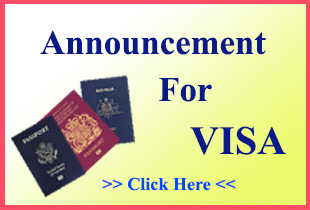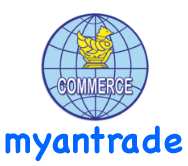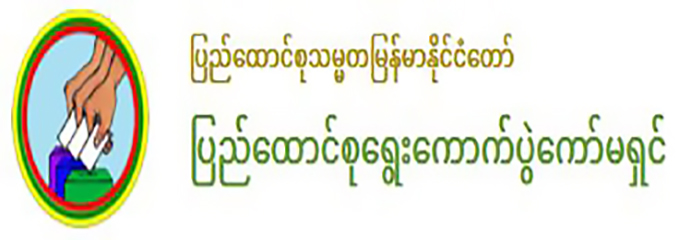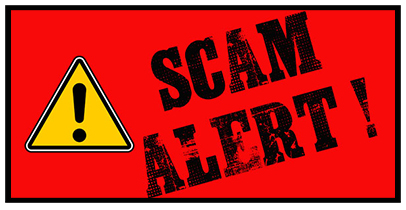Myanmar Trade Rules
MYANMAR EXPORT / IMPORT RULES AND REGULATIONS
Export / Import Licensing System
Law Governing Licensing
The main law governning the authorization of licensing is contained in the Control of Imports and Exports ( Temporary ) Act, 1947, which has been amended when necessary and which is still in force. This law is administered by the Ministry of Commerce which, from time to time, issues necessary orders, notification, directives, pertaining to all export / import matters including issuance of licences and permits as well.
Licensing Authority
The authority to issue export / import licences and permits is delegated to Directorate of Trade and Department of Border Trade under the Ministry of Commerce. Directorate of Trade is authorised to issue export / import licences and permits for export / import by overseas. Department of Border Trade is authorised to issue export / import licences for cross border trade.
Registration
All private business enterprises, both local and foreign, co – operative societies, joint – venture organizations, desirous of carrying on export / import business are required to apply to the Directorate of Trade for registration as exporter / importer.
Registration of Exporter/Importer
Registration
1. The following individual/enterprises desirous of carrying on export/import business may apply to the, Directorate of Trade for registration as exporter/importer:
- (A) A citizen or associate citizen or naturalized citizen
- (B) Partnership firms;
- (C) Limited companies inclusive of foreign companies or
- (D) Co-operative societies registered under the Co-operative
Societies Law;
Term of registration, registration fee and extension fee
2. Term of registration, registration fee and extension fee for
exporter/importer are as follows:
- (A) Terms of registration 1 year,2 years or 3 years
- (B) Registration fee or extension
fee for one year Kyats 15,000/- - (C) Registration or extension
- (D) Registration or extension
fee for three years Kyats 30,000/-
Certificate of registration
3. Effective from 1.4.94, the Directorate of Trade issued new
form of certificate of registration as appended. Annexure
Amendment of certificate
4. Alteration, addition or amendment is allowed upon payment of Kyats 300 per entry.
Period of extension
5. Registered exporter/importer shall, at the expiry of the term of registration, either one or two or three years as the case may be, apply for extension.
Application for extension of certificate
6. (A) Application shall be made prior to expiry of the term of registration;
(B) If applied after the expiration, the following penalty
shall be paid in addition to the relevant extension
fee:
- (i)Within one month from the expiry- Kyats 500/-;
- (ii)Within two months from the expiry- Kyats 1000/-;
- (iii)Within three months from the expiry- Kyats 1500/-;
Surrender of certificate of registration
7. Exporter/importer not desirous of continuing business may
surrender the certificate of registration.
Cancellation of registration
8. As mentioned earlier in Para 5, the exporter/importer Shall, at the expiry of registration, apply for extension. The registration will be cancelled if he fails to apply for extension after three months from the date of expiry.
Issuance of duplicate copy of certificate of registration and identity card
9. The exporter/importer has the right to apply for the issuance
of duplicate copy of certificate of registration or identity card issued to him by the directorate of Trade upon payment of Kyats 300/- as service charges.
Rights of the registered exporter/importer
10. The followings are the rights of registered exporter/importer:
- (A) To export all products in accordance with the
prescribed rules and regulations except for those which
are prohibited by the State and the products,
prescribed to be solely undertaken by the State-owned - (B) To import all products in accordance with the
prescribed rules and regulations, with the foreign
exchange (earned on export) or by using any other - (C) To do border trade business in accordance with the prescribe rules and regulations but registered exporter/importer should not be a foreign firm.
- (D) To distribute by whatever means available in the local
- (E) To apply for issuance of business pass-port;
- (F) To receive the foreign guest for business negotiation.
Export / Import licences
Generally every export / import by private business enterprises and State Enterprises are subject to export / import licence / permit issued by the licensing authorities concerned. The validity of export / import licence / permit issued by the Directorate of Trade is normally six months from the date of issue, and can be extended for three months period at a time.
Items allowed for Export
Normally, the registered exporter / importer has the right to export all commodities, except for rice and rice products and other products which are prescribed to be solely exportable by the State – owned Economic Enterprises. 30 / 31 items including Teak, rice, etc. are prohibited to export overseas and through the border areas, as shown in Annexure I & Annexure II.
Items allowed for Import
Policy pronouncement as to import include, inter alia, to cater the basic needs of the country’s economic sectors, namely, agriculture, livestock breeding, fishery, forestry, transportation, manufacturing, mining and so on, while the consumer choices can be fulfilled equally at the same time. These are reflected in the classification of import items which are now divided into two categories : –
( 1 ) Priority items (A) – which include machinery and spare parts, agricultural machinery and farm implements,fertilizers, pesticides, high yield quality seeds, edible oil, oil and industrial raw materials, construction stores and building materials ;
( 2 ) Priority items (B) – about sixty items grouped under personal goods, household goods, foodstuff, construction materials, textile products, electric and electronic products and general products.
The private importer is required to import 80 % priority (A) items if he wishes to import priority (B) items. He could also import 20 % priority (B) items, together with priority (A) items and ship them at the same time. Generally no quota or ceiling is fixed for imported items so long as the requirement to import the prescribed amount of priority items is fulfilled, with the exception of edible oil.
Products allowed for Import which is excluded from Prohibited items, restricted items and Priority items.
Some commodities, which are not in the list of prohibited items, restricted items, priority items are allowed to import as in the list of Priority (B) within the right of 20 % ratio for import.
A summary of list of priority items (A) and priority item (B) are given in Annxure III & Annxure IV.
Items not allowed for Import
At the present, the undermentioned items are not allowed to be imported both by overseas and border. The commodities prohibited to import shall be from time to time amended in accordance with the latest situation of local market conditions.
Overseas |
Border Trade |
||
|
No.
|
Commodities(FoodStuffs)
|
No.
|
Commodities(FoodStuffs)
|
|
1.
|
Seasoning powder(MSG) |
1.
|
Seasoning powder(MSG) |
|
2.
|
Soft drinks |
2.
|
Soft drinks |
|
3.
|
Biscuits Assorted |
3.
|
Biscuits Assorted |
|
4.
|
Chewing Gum |
4.
|
Chewing Gum |
|
5.
|
Cake |
5.
|
Cake |
|
6.
|
Wafer |
6.
|
Wafer |
|
7.
|
Chocolate |
7.
|
Chocolate |
|
8.
|
Canned foods(meat&fruits) |
8.
|
Canned foods(meat&fruits) |
|
9.
|
Noodles |
9.
|
Noodles |
|
10.
|
Liquor |
10.
|
Liquor |
|
11.
|
Beer |
11.
|
Beer |
|
12.
|
Cigarette |
12.
|
Cigarette |
|
13.
|
Fruits(fresh) |
13.
|
Fruits(fresh) |
|
14.
|
Prohibited products as per existing laws |
14.
|
Plastic wares |
|
15.
|
Prohibited products as per existing laws | ||
Export Retention
The registered exporters / importer are allowed to enjoy 100 percent export retention money for the export of goods. There exists no export quota nor ceiling for any exportable product or any individual or organization with the exception of textile products which are subject to quota fixed by the importing country.
Fees and Taxes on Export / Import
No export licence fee is payable on export of any commodity including agricultural crops. All imports are subject to payment of licence fees, customs duty and commercial tax. Import licence fee is payable on CIF value at a minimum of K 250 up to a maximum of K 50000. On CIF value over K1 million licence fee payable is K 50000 only. The rates are shown in the following table : –
Table VII
Rates of import licence fees
Kyats
C.I.F value (of the licence/permits) |
Licence fees |
|
| Up to 10,000 |
250
|
|
| From 10,001 to 25,000 |
625
|
|
| From 25,001 to 50,000 |
1,250
|
|
| From 50,001 to 1,00,000 |
2,500
|
|
| From 1,00,001 to 2,00,000 |
5,000
|
|
| From 2,00,001 to 4,00,000 |
10,000
|
|
| From 4,00,001 to 10,00,000 |
20,000
|
|
| From 10,00,001 and above |
50,000
|
|
Customs duty together with the commercial tax are collected at the point of entry and the time of clearance of imported goods. Import tariff covers 21 sections of 98 chapters, consisting of 1241 headings and 6062 sub – headings ( denoted by 8 digits ) based on the Harmonised Commodity Description and Coding System. There are 22 bands of import tariffs ranging from 0 to 40%. Raw materials and other essential imports are taxed at very low rates, while the highest rate is applied to luxury items.
Commercial tax is levied according to the schedules appended to the Commercial Tax Act 1991, and the rates vary depending on the types of goods and services. For the items not exempted from commercial tax, the rates of tax on imported goods are 5 %, 10 % 20 %, 25% according to the respective schedule of goods. Another schedule represents specific types of foods such as cigarette, liquor, etc. carrying rates above 25 %.
Assessment of Import Duty is based on the assessable value, which is the sum of CIF value and the landing charge ( 0.5 % of the CIF value ) for the goods imported. The commercial tax together with the custom duty are collected at the point of entry and the time of clearance of imported goods.
Exemption From the Payment of Duties
Under section 23 of the Sea Customs Act exemption from the total or partial payment of duties may be allowed in such case as required by the Head of State. But the authority for the exemption lies with the Ministry of Finance and Revenue on behalf of the Head of State. In the case of joint ventures and firms established under foreign investment programme, the Foreign Investment Commission may authorize the exemption from the payment of duties in exercising the power conferred by the section 22, of the Foreign Investment Law.
Temporary Importation
Commodities, imported temporarily for inward processing, such as industrial raw materials, packing materials are exempted from customs duty for a period of two years under bond to re export within time limit.
Export / Import Policy for Private Sector Export Policy
The commodities which are restricted to be exported from time to time. ( Example; Kitchen consumable such as onion, garlic, potato, chilli etc; )
Remarks : Although above mentioned commodities are prohibited to export by private entrepreneurs , the state owned organizations are allowed to export in accordance with the prescribed rules and regulations.
Although rice and other restricted crops (except edible oil seeds) and rubber are restricted to export by private sector, the agriculture produce from the large firm leased to the private sector under the land reclamation programme of the government are permitted to export as follows :
- (a) Rice and other restricted – 50% of produce crops (except edible oil seeds )
- (b) Rubber – After 45% of produce has been sold to Myanma Perennial crops Enterprises , the rest 55% shall be exported.
Commercial tax and income tax
8 percent commercial tax and 2 percent income tax shall be payable in foreign currency for all export from private sector.
Import Policy
Commodities which are restricted for the time being are the following :
(a) Cement, M.S.Rods – Shall be allowed to import upon receipt of certificate from the Housing Committee and Foreign Capital Evaluation Committee.
(b) Galvanised Corrugated – Prohibited Sheet (for roofing)
(c) Truck, Bus, Saloon – Shall be allowed to import upon receipt of Vehicles, Motorcycle permission from Trade Council.
(d) Restricted foodstuff, – Shall be allowed to import only for Hotels & Liquor, Beer, Cigarette Duty Free shops with the recommendation of the Ministry of Hotel and Tourism.
Type of foreign exchange to be allowed for Import
Import shall be allowed against the following type of foreign exchange : –
(a) The proceeds from Export.
(b) Foreign exchange income from services such as house rent, mortor car rental, salaries and other service charges. ( after deducting 10 percent in foreign currency as revenue tax )
(c) Foreign capital brought into Myanmar. ( Not more than 75 percent of the total foreign capital brought into Myanmar, to be allowed for import ) Note : Income earned from export and service charges shall be allowed to make account transfer. However the foreign capital brought into Myanmar shall not be allowed to make account transfer.
(d) Foreign currency which is sent either by a foreign company or a person in abroad to a company / person in Myanmar to do business. ( Import shall be allowed against 90 percent of the foreign currency after making payment 10 percent as revenue tax )
Commodities for which import licence fee is exempted
Import licence fee is exempted on the following commodities :
(a) 67 kinds of Medicines and Pharmaceutical raw materials used in the manufacture of drugs and medicines for the purpose of supporting the improvement of public health and the welfare of the people in receiving medical treatment.
(b) the following commodities imported for the development of the agriculture sector. (1) Fertilizer (2) Farm implements (3) Agriculture Machinery (4) Insecticides
(c) Commodities transported through the territory of the Union of Myanmar under the Transit Trade System.
(d) Materials used in the business during the construction and production period under the foreign investment permit issued by the Union of Myanmar Investment Commission.
(e) Commodities imported for departmental use by the state organizations.
LIST OF COMMODITIES PROHIBITED TO EXPORT THROUGH OVERSEAS TRADE UNDER CONVENTIONAL TRADE SYSTEM
Agricultural Products
(1) Rice , Borken rice, Rice bran (2) White sugar, Red sugar, Brown sugar (3) Brown slab – sugar (4) Groundnut, Groundnut oil (5) Sesamum, Sesamum oil (6) Groundnut cake, sesamum cake (7) Gramwhole / Gramdhal (8) Cotton
Minerals and metals
(9) Petroleum (10) Gems and jewellery (11) Gold (12) Jade (13) Pearl (14) Diamond (15) Lead (16) Tin (17) Wolfram (18) Tin – scheelite (19) Silver (20) Bronze (21) Zinc (22) Coal (23) Other metals
Animal & animal products
(24) Ivory (25) Buffalo, cow, elephant, horse and rare animals (26) Leather
Marine Products
(27) Shrimp bran
Miscellaneous
(28) Arms and ammunitions (29) Antiques
Forest Products
(30) Rubber
LIST OF COMMODITIES PROHIBITED TO EXPORT THROUGH BORDER AREAS UNDER CONVENTIONAL TRADE SYSTEM
Agricultural Products
(1) Rice , Borken rice, Rice bran (2) White sugar, Red sugar, Brown sugar (3) Brown slab – sugar (4) Groundnut, Groundnut oil (5) Sesamum, Sesamum oil (6) Groundnut cake, sesamum cake (7) Gramwhole / Gramdhal (8) Cotton
Minerals and metals
(9) Petroleum(10) Gems and jewellery(11) Gold(12) Jade(13) Pearl (14) Diamond(15) Lead(16) Tin(17) Wolfram(18) Tin – scheelite(19) Silver(20) Bronze(21) Zinc(22) Coal(23) Other metals
Animal & animal products
(24) Ivory (25) Buffalo, cow, elephant, horse and rare animals (26) Leather
Marine Products
(27) Shrimp bran
Miscellaneous
(28) Arms and ammunitions (29) Antiques
Forest Products
(30) Rubber (31) Teak
LIST OF PRIORITY ITEM (A)
- Machinery and spare parts (as per list)
- Industrial raw materials (as per list )
- Agriculture related materials
- (a) Fertilizer
- (b) Pesticide, Insecticide
- (c) Hybrid seeds
- Foodstuffs
- (a) Wheat Grains
- Construction Materials
- (a) Cement
- (b) Round bars
- (c) Pipes (both G.I and P.V.C)
- (d) Refractory bricks
- Building materials
- (a) Galvanized corrugated iron sheets
- (b) Other roofing sheets
- (c) Wire nails
- (d) G.I wires
- (e) Paints and varnishes all sorts
- Materials for fisheries
- (a) Assorted fishing nets and mending twines and ropes
- (b) Steel wire ropes
- (c) Outborad motors
- (d) Marine gear, engines and spare parts (up to 240 H.P)
- (e) Cold storage, Ice plant, chemical and spare parts for them
- (f) Fish / prawn processing materials, equipments for the export of marine products
- Components and spare parts for transportation
- (a) Logging trucks
- (b) Dump trucks ( 3 ton and above )
- (c) Bus for 45 passengers and aboveContinued
- (d) Truck ( 3 ton and above )
- (e) Bicycle
- (f) Vehicles tyres, tubes and flaps
- (g) Brand new motor vehicle spares
- (h) Battery
- Medicines
- (a) X-ray flim
- (b) Surgical goods instruments
- (c) Optical frames / lenses
- (d) Medicines and medical equipment
- Materials for livestock breeding
- (a) Pure livestocks of high quality
- (b) Foodstuff additives
- (c) Veterinary medicines
- Electrical goods
- (a) Fluorescent lamp, Bulbs, switch and related component parts
- (b) Street Lantern
- Stationeries
- Paper all sort
- Petroleum products
- (a) Lubricants ( brake oil, engine oil, grease, gear oil. hydraulic oil )
- Agricultural supporting items.
- Sports supporting items.
- Educational supporting items.
- Health supporting items.
- Items to be prescribed from time to time.
LIST OF PRIORITY ITEM (B)
Personal Goods
1. Baby Powder
2. Blades Assorted
3. Razors
4. Tooth Paste
5. Tooth Brush
6. Baby Diaper
7. Umbrella
8. Foot Wears
9. Hats
10. Watches And Clocks All Sorts
Household Goods
11. Glue All Sorts
12. Dried Cell Battery All Sorts
13. Flask All Sorts
14. Mosquito Coils All Sorts
15. Soaps
16. Detergent
17. Powder for Auxillary Washing Preparation
18. Sanitary wares 19. Torch Lights 20. Mirrors All Sorts 21. Kitchen Wares ( Glass, Earth, Ceramic And Steel Wares )
Food stuffs
22. Malted Food 23. Cereal 24. Corn Flour/Wheat Flour 25. Coffee Mix, Tea Mix 26. Sweetened Condensed Milk 27. Evaporated Filled Milk
Construction Materials
28. Tiles All Sorts 29. Ceiling Board All Sorts 30. Painting Brush All Sorts
Textiles
31. Ready – Made – Garments 32. Cotton, Polyester, Suiting Fabrics 33. Vest All Sorts 34. Nylon Mosquito Nets 35. Bed sheet 36. Towels All Sorts 37. Socks And Stockings
Electrical Products
38. Electric Fans 39. Emergency Lamps 40. Electric Stoves / Ovans 41. Gas Stoves / Ovans
42. Hair Dryer 43. Exhaust Fans 44. Rice Cooker 45. Calculators 46. Radios 47. Cassettes 48. Cassettes Tapes
Electronic Products
49. Washing Machines 50. Freezer 51. Refrigerator 52. Air Conditioners 53. Laser Disc ( Video / Audio ) 54. Video Tapes 55. Video Camera All Sorts
Miscellaneous Items
56. Paper Linens 57. Photographic Papers 58. Film All Sorts 59. Camera All Sorts
60. P.V.C Floor Coverings









